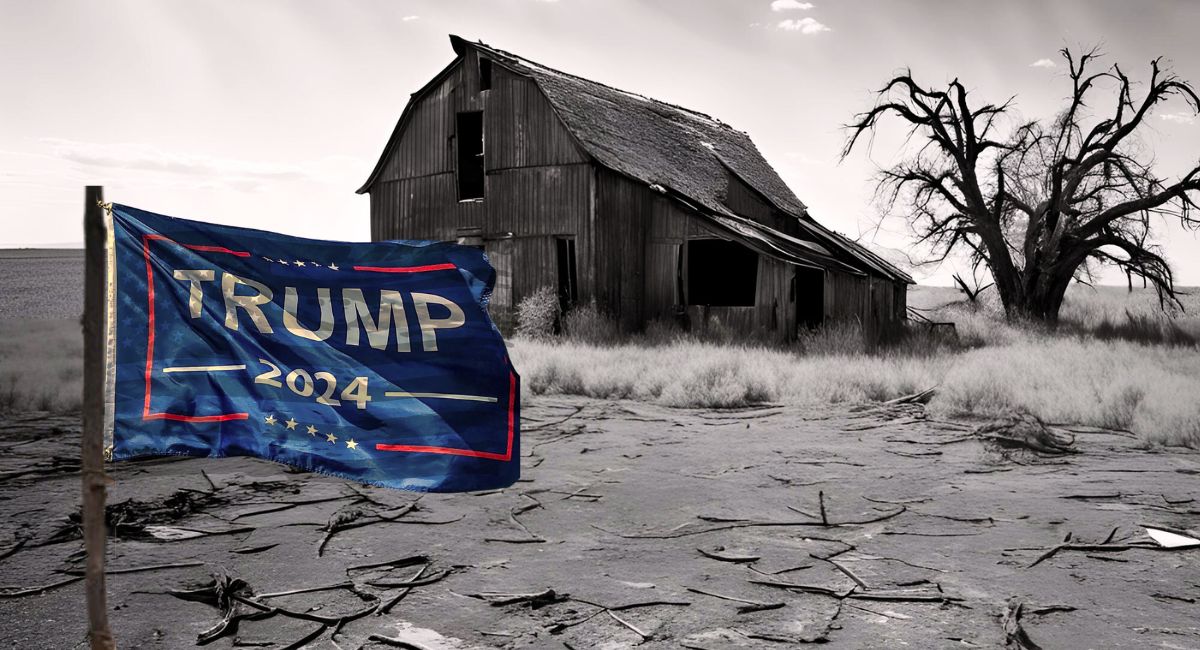The MAGA-inspired Trump campaign is jam-packed with rhetoric about freedom, greatness, and family values. In practice, it commits a formerly conservative Republican party to increased government intrusion into business, community, and family life.
One need look no further than the nation’s agricultural sector to see where this agenda leads, with California a case in point.
The Golden State produces about one-third of all the vegetables and three-quarters of all the fruit and nuts grown in the U.S., totaling some $58 billion each year. Many of the workers who make this possible are undocumented. In California, the estimates are around half of the workforce or about 400,000 individuals.
Trump’s oft-repeated commitment to “carry out the largest deportation operation in American history,” a central part of the bizarre policy framework presented in the Republican Party platform and the closely-linked Project 2025 blueprint that offers detailed guidance for a second Trump-led administration, would therefore be disastrous for California agriculture and the nation, spurring price hikes in supermarkets across the country.
And it gets worse.
Trump’s plan doesn’t just hurt undocumented farmworkers and hundreds of thousands of their family members. It also seriously threatens local employers, given that most of these workers are longtime community members and essential employees who cannot be easily replaced.
Productivity in the agricultural industry requires experience. The industry workforce does not simply include field workers but, also, supervisors, production managers, packing house workers, technicians, truck drivers, and warehouse workers.
It also requires commitment to hard work. Given that at least four out of five undocumented farmworkers plan to keep on working in agriculture for 5+ years, why deport them when labor shortages have been a constant challenge for the industry for at least two decades?
And yes, it gets worse.
The MAGA-induced disruption to agribusiness would erode the local tax base and financial viability of hundreds of California communities where agriculture is the major industry. Fragile healthcare networks and local school districts would be among the most impacted.
Researchers looking at how ICE enforcement targeting undocumented immigrants has affected local community life have invariably seen ripple effects where legal Latino residents and citizens also hunkered down in response to the climate of fear.
And yet Project 2025 looks to take things further, reshaping US agricultural policy by proposing to cap and phase out the H-2A program, which provides visas for seasonal agricultural workers, even as deportation of hundreds of thousands of current immigrant farmworkers is underway.
Project 2025’s authors argue such measures would encourage producers to hire more “Americans.” In reality, they would create a perfect storm of economic hardship for California and other major agricultural states.
If Trump and his allies were genuinely interested in supporting US producers, they would look squarely at the bona fide challenges and opportunities that exist and develop plans to address these. That would entail such things as the need to secure an adequate water supply, as well as investment opportunities in developing technologies.
For example, serious planners suggest that, with farm production unit size increasing, AI and other information technology improvements may be more important than improving harvesting machine technology, that applied genetic research yields dramatic improvements, and that drones might supplement or replace expensive crop-dusting.
Instead, Project 2025’s authors are targeting the SNAP (Food Stamp) program that helps about 22 million U.S. households eat better. And they want to cut school meal programs that serve about 29 million children and their families every day. A better plan would be to expand both programs to allow schools to procure more fresh ingredients and further improve meal quality—a win-win for both hungry children and for agriculture.
So, what should voters look for in lieu of the free-floating and ill-advised legal minutiae proposed by Project 2025’s armchair experts?
To effectively support agriculture and other major states where there is labor-intensive agricultural production (such as Florida, Washington, Oregon, and Arizona), a new administration will need to listen carefully to organizations such as the Western Growers. They will need to talk with the California Farm Labor Contractors Association—since a large proportion of farm labor is actually contracted. They will need to talk with production managers at both large and small farms about the specific sorts of technological innovation they actually need.
And yes, they will need to talk with farmworkers themselves, and with the organizations that represent them, such as the United Farm Workers (UFW) and the Coalition of Immokalee Workers, which has seen remarkable success in collaborative efforts with growers such as their Fair Food Program.
It shouldn’t be surprising that in a nation with a population of 340 million and a $29 trillion economy, simple solutions are hard to find. Respect for diverse interests and opinions, the underlying premise of democracy, is not a luxury. Practically speaking, it is essential as the basis for policies that will actually address real-world problems.
The MAGA/Trump/Project 2025 agenda cannot actually help rural agricultural communities grow stronger because its ideologically crafted schemes – which seem more bent on promoting White supremacy and Christian nationalism – make it immune to common sense and the day-to-day life in diverse communities across the U.S.
The sad irony is that if the MAGA-inspired Trump agenda succeeds, everyone will suffer.
Edward Kissam is a leading researcher and advocate for strategies to deal with health issues impacting farmworker and immigrant communities. He has led research on farmworker and immigrant issues sponsored by the Department of Labor, the Commission on Agricultural Workers, and the National Institute for Food and Agriculture. He is also a trustee of the WKF Charitable Giving Fund.




